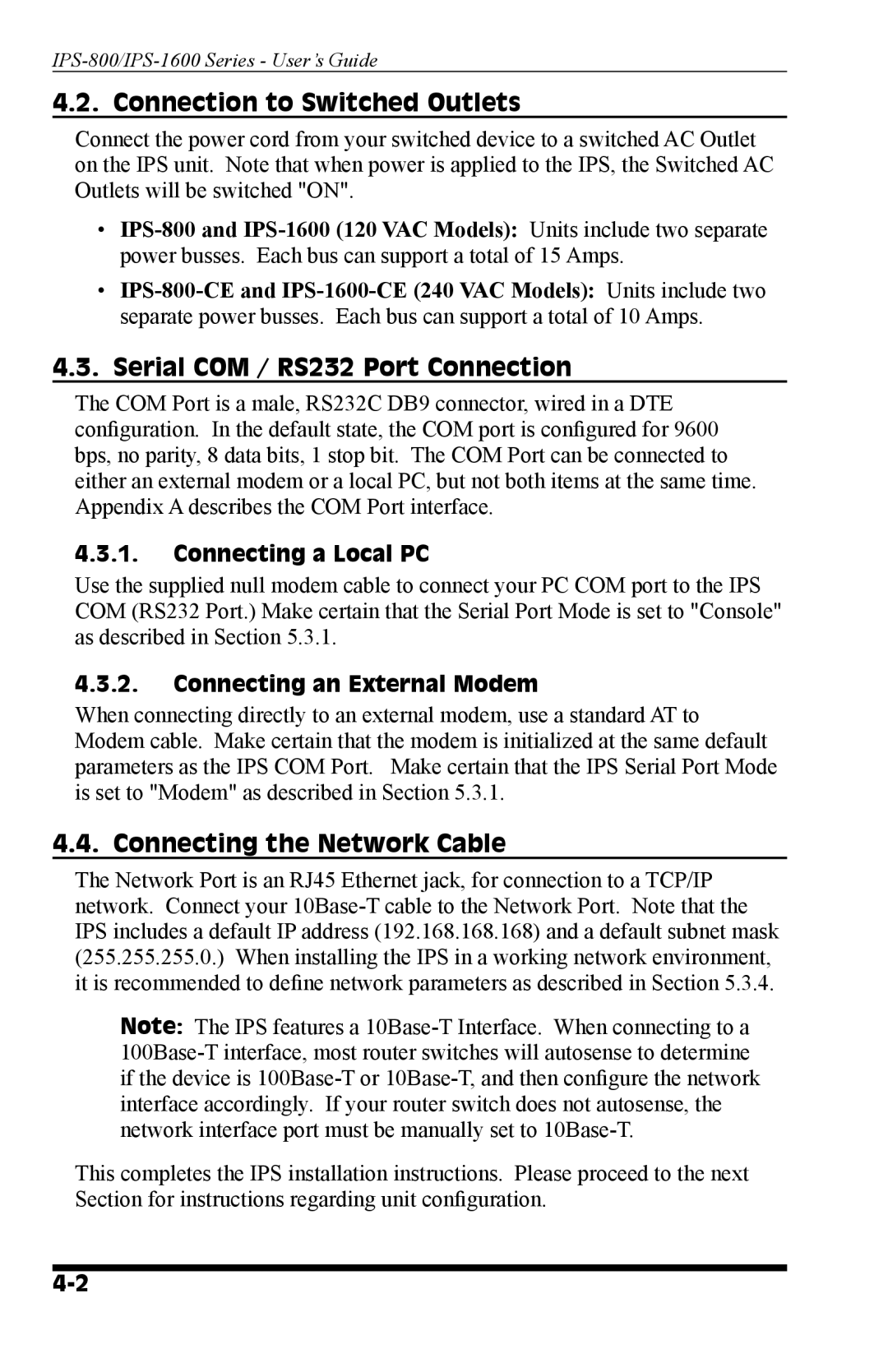
IPS-800/IPS-1600 Series - User’s Guide
4.2. Connection to Switched Outlets
Connect the power cord from your switched device to a switched AC Outlet on the IPS unit. Note that when power is applied to the IPS, the Switched AC Outlets will be switched "ON".
•
•
4.3.Serial COM / RS232 Port Connection
The COM Port is a male, RS232C DB9 connector, wired in a DTE configuration. In the default state, the COM port is configured for 9600 bps, no parity, 8 data bits, 1 stop bit. The COM Port can be connected to either an external modem or a local PC, but not both items at the same time. Appendix A describes the COM Port interface.
4.3.1.Connecting a Local PC
Use the supplied null modem cable to connect your PC COM port to the IPS COM (RS232 Port.) Make certain that the Serial Port Mode is set to "Console" as described in Section 5.3.1.
4.3.2.Connecting an External Modem
When connecting directly to an external modem, use a standard AT to Modem cable. Make certain that the modem is initialized at the same default parameters as the IPS COM Port. Make certain that the IPS Serial Port Mode is set to "Modem" as described in Section 5.3.1.
4.4. Connecting the Network Cable
The Network Port is an RJ45 Ethernet jack, for connection to a TCP/IP network. Connect your
Note: The IPS features a
This completes the IPS installation instructions. Please proceed to the next Section for instructions regarding unit configuration.
